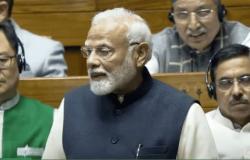This is a confidential report. Fifty-five pages of analysis written by the ministerial inspection services on administrative controls in the agricultural world. Fifty-five pages to explain, specify, dissect to what extent farmers and unions have controls in their sights and what solutions could be implemented to restore trust between the two trades.
The report, obtained by our colleagues from Contextwas commissioned by a mission which brings together four ministerial inspection bodies (agriculture, interior, environment, justice). Initiated in February 2024, it interviewed more than 400 people from control bodies, unions, administrations and jurisdictions. Questionnaires were also sent to prefects, DDTs and courts to collect a wider range of testimonies.
10% of farms controlled during the year
At the end of six months of work, “the mission noted a significant gap between the farmers' feelings of high control pressure accompanied by the severity of the sanctions and penalties resulting therefrom, and the reality of the controls carried out on the farms agricultural and the sanctions and sentences actually imposed. »
Even if farms can be subject to control other than administrative (judicial, or as part of quality procedures), this type of control remains in the majority. However, few farmers are checked over the course of a year.
Indeed, of the 389,800 farms, it seems that 10% are subject to an inspection once a year and only 1% undergoes two or more administrative inspections during the year, according to data from the DDT. A figure below the feelings of farmers and their representatives who are calling for pressure to be reduced.
“Feeling of being placed under surveillance”
Currently, a dozen state organizations (1) carry out checks on agricultural operations, on subjects as varied as employment, environmental damage or Pac aid.
The mission cites the feeling of farmers of being “more severely punished than other litigants”, and apprehensions about the modalities of carrying out the controls, more than about the “counting of these”.
Controls using satellite images give a “feeling of being placed under surveillance”, even if it has been accompanied by a right to make mistakes since its implementation. All types of controls are now notified to the farmers concerned, “the feeling of control pressure is accentuated”, affirms the mission.
“The dematerialization of procedures coupled with a reduction in the number of decentralized State services has contributed to dehumanizing controls and creating more distances between controllers and those being inspected,” notes the inspection services. During physical checks, the posture of certain agents “gives operators the feeling that the control system is designed to trap them and that the sanction is sought at the end of the process and not compliance. »
Encourage pedagogy
This feeling of unease also appears in the face of the “difficult control of a complex and constantly evolving legal framework”, which creates a “feeling of insecurity when a control is carried out”.
The feeling of insecurity could be reduced by several educational and communication measures. The mission therefore proposes to improve the information of farmers on the evolution of the regulations, via the consular network of chambers of agriculture, to institute continuing training, or to generalize annual information meetings.
Blank checks at the start of a new regulation could be put in place, as could contact by telephone prior to the check. The mission then suggests extending the notice periods for inspections and offering educational visits on regulations with farmers.
S’adapter au local
More generally, there is a feeling that the standards are “developed too far from the field” with the proliferation of exemptions. The effects of climate change are also forcing farmers to adapt. This reality on the ground would go hand in hand with the feeling of “insufficient consideration by controllers of the conditions in which the crops may have been carried out”.
To adapt, the mission recommends encouraging a logic of subsidiarity by calling on local institutions to adapt to the sometimes differentiated realities on the ground. Annie Genevard, Minister of Agriculture, thus gave a prefect role to the prefects during the announcements relating to single control last October. “The relationships that the agricultural profession maintains with the prefects and their services remain confident, constant and of high quality,” notes the mission.
To better understand seasonality, training (already planned for the OFB) could be proposed for controllers, argues the mission. But the latter observes that the control services are experiencing “serious difficulties”, both in terms of the importance of fixed-term contracts, status, and number of controllers. These difficulties can hinder, in finethe good work of the agents.
Strengthen the resources of agents
If a “very low number of criminal charges” is retained at the end of the procedures, the inclusion of the penalties incurred, much higher than those applied, can be a source of unease for the farmers inspected.
If the place of hearing, often in the gendarmerie, is “usual” in terms of legal proceedings (because it allows confidentiality), it is “a cause of dissatisfaction among farmers”. “The on-site hearing could be preferred,” notes the report. This would involve equipping agents with the appropriate equipment: laptop, portable printer, etc. Equipment which also represents a cost.
Often, the procedure for hearing controlled persons can prove to be “cumbersome”, notes the mission: “Hearings exceeding three hours are, it seems, frequent, some lasting up to 6 or 7 hours. » A duration that the inspection services propose to adapt depending on the seriousness of the facts.
Likewise, OFB agents would indicate “systematically in the hearing minutes the details of the penalties incurred while only the nature of the facts must be mentioned”. An inscription which could intimidate farmers and would, according to those heard by the mission, be a “strong source of tension”.
Review the scale of penalties
At the administrative level, the mission proposes adapting penalties, particularly criminal ones, by proposing educational alternatives, and expanding the right to make mistakes for environmental violations. With regard to Pac aid, the mission proposes to allow payment of the advance for this aid in the event of an audit, while it is suspended until the audit is finalized. The controls linked to the CAP are sometimes perceived as a “risk on the amount of financing which, for some, is essential to the balance of the operation”.
Among these numerous recommendations, some were taken up by the Minister of Agriculture at the end of November, such as the payment of the Pac aid deposit, even in the event of an audit. It remains to be seen whether the other proposals will succeed in making their way through a government destabilized by two motions of censure.
(1) ASP, AE, DDPP, DDTM, DDETS, DDFIP, DRDDI, DRAAF, DREAL, FAM, IFCE, OFB.






